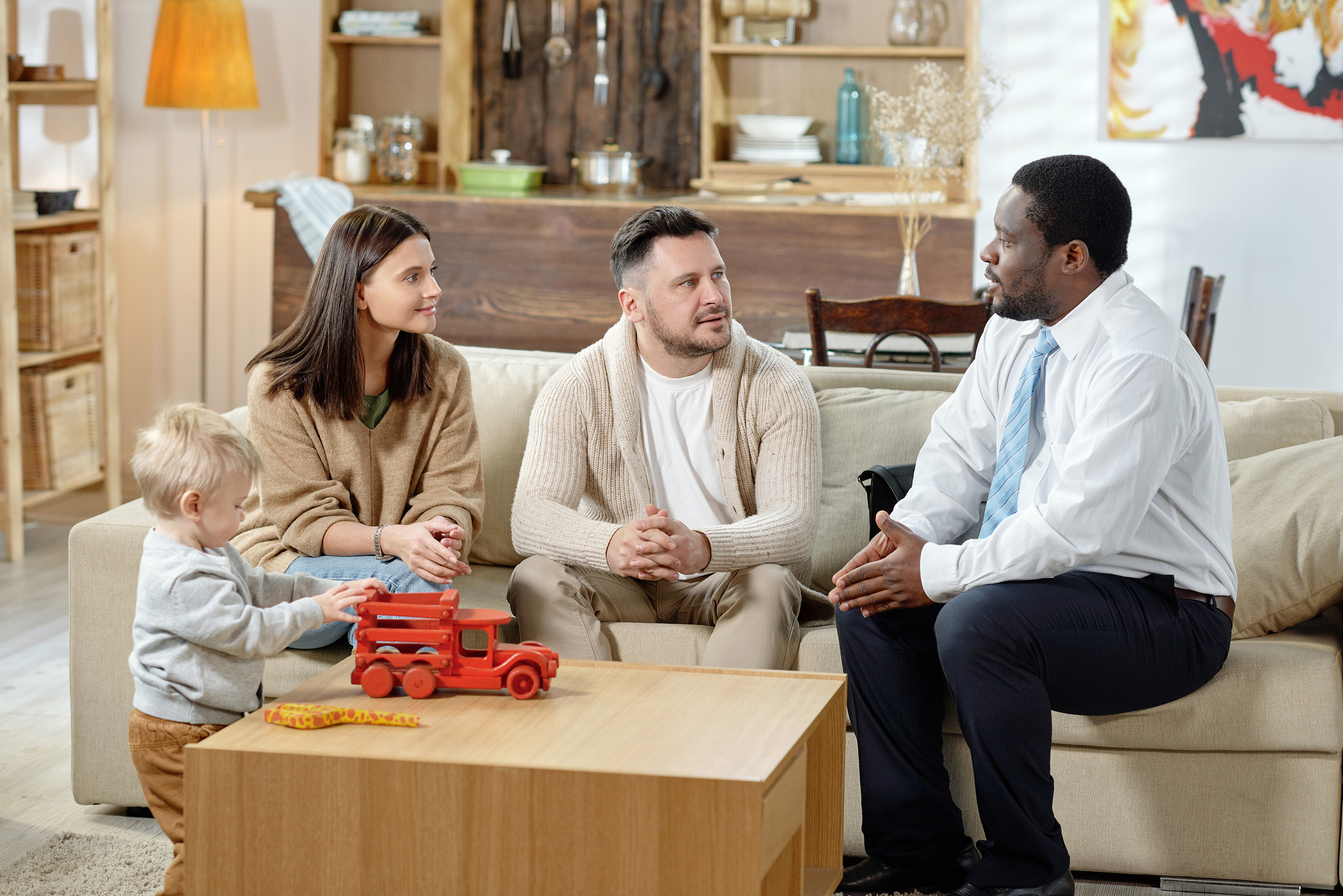Both relationship counselling and couples therapy offer a structured environment where couples can explore their issues with the guidance of a skilled professional. While they share some similarities in their objectives, the paths they take to achieve these goals are notably different. By delving deeper into the nuances of each approach, individuals can better align their therapeutic journey with their specific needs and circumstances. This alignment is crucial for maximizing the benefits of therapy and fostering a healthier, more fulfilling relationship.
Understanding Relationship Counselling
Relationship counselling, often equated with marriage counselling, primarily addresses specific issues within a relationship, whether they pertain to communication barriers, conflict resolution, or emotional misunderstandings. It is typically short-term and goal-oriented, focusing on the present dynamics between partners. The aim is to facilitate immediate improvements in interaction patterns and to offer strategies that can be utilized for ongoing relational enhancement. This approach is particularly beneficial for couples experiencing acute conflicts or seeking to enhance their communication skills.
The structured, solution-focused nature of relationship counselling makes it an attractive option for couples who wish to see tangible results in a relatively short period. By concentrating on the here and now, this form of counselling encourages partners to adopt new communication techniques and conflict resolution strategies that can quickly improve their relationship. Moreover, relationship counselling often involves setting specific, measurable goals, allowing couples to track their progress and celebrate their achievements along the way.
Theoretical Underpinnings of Relationship Counselling
Relationship counselling is typically grounded in cognitive-behavioral theories that emphasize the modification of specific behaviors and thought patterns within the relational context. These interventions are designed to alter maladaptive communication styles and to promote healthier interactions. By focusing on the present issues at hand, relationship counselling seeks to provide practical solutions that partners can implement in their daily lives. This theoretical foundation underscores the importance of changing negative thought patterns and behaviors to improve relationship dynamics.
Additionally, relationship counselling often incorporates elements of solution-focused brief therapy, which emphasizes building on existing strengths and resources. This approach encourages couples to envision their desired future and identify practical steps to achieve it. By concentrating on solutions rather than dwelling on problems, relationship counselling empowers partners to make positive changes and fosters a sense of agency and hope.
Practical Applications and Techniques
A relationship counsellor might employ various techniques such as active listening exercises, role-playing, and conflict resolution strategies. By engaging in these practices, couples can gain insights into their interaction patterns and develop more constructive ways of communicating. The counsellor’s role is to act as a facilitator, helping partners to recognize and articulate their needs more effectively, thus fostering a supportive and empathetic environment. These techniques are designed to enhance communication skills and promote mutual understanding between partners.
In addition to these techniques, relationship counselling may also incorporate communication skills training, where couples learn to express themselves assertively and listen empathetically. This training helps partners articulate their feelings and needs clearly, reducing misunderstandings and fostering greater emotional intimacy. By equipping couples with these practical tools, relationship counselling can lead to lasting improvements in relationship satisfaction and stability.

Exploring Couples Therapy
In contrast, couples therapy delves deeper into the psychological and emotional substrata of a relationship. It involves an exploration of the underlying emotional processes and historical contexts that shape relational dynamics. Couples therapy is often long-term and may involve an exploration of past experiences, family-of-origin issues, and deep-seated emotional patterns that influence the current relationship. This comprehensive approach aims to address the root causes of relational difficulties, rather than just the symptoms.
Couples therapy provides a safe space for partners to explore their emotional vulnerabilities and gain insights into the complex interplay of individual and relational factors. This deeper level of exploration can lead to profound shifts in understanding and behavior, ultimately fostering greater emotional intimacy and connection. By addressing the underlying emotional issues, couples therapy can help partners build a stronger, more resilient relationship foundation.
Theoretical Foundations of Couples Therapy
Couples therapy is often rooted in psychodynamic and systemic theories that explore the intricate interplay of individual psychological processes and relational dynamics. These approaches consider the influence of past experiences and unconscious processes on present relational patterns. Through this lens, couples therapy seeks to uncover and address the deeper emotional underpinnings that contribute to relational discord. This theoretical foundation emphasizes the importance of understanding the complex emotional landscapes that shape relationship dynamics.
In addition to psychodynamic and systemic approaches, couples therapy often integrates elements of attachment theory, which examines how early attachment experiences influence adult relationships. By exploring attachment styles and their impact on relational behavior, couples therapy can help partners develop more secure and adaptive ways of relating to one another. This integrative approach provides a comprehensive framework for understanding and addressing the multifaceted nature of relational issues.
Techniques and Interventions in Couples Therapy
Therapists employing couples therapy might utilize techniques such as emotion-focused therapy (EFT), which aims to identify and transform negative emotional cycles within the relationship. Other approaches may involve exploring attachment styles, family systems, and the impact of early relational experiences on current dynamics. The therapist’s role is to guide partners through a process of emotional exploration and healing, facilitating a deeper understanding and connection between them. These interventions are designed to foster emotional attunement and promote healing within the relationship.
Couples therapy may also include interventions such as narrative therapy, which encourages partners to re-author their relational stories and create new, more empowering narratives. By examining and reshaping the stories they tell about their relationship, couples can gain new perspectives and develop a more positive relational identity. This process of narrative reconstruction can lead to transformative shifts in how partners perceive and relate to each other.
Deciding Between Relationship Counselling and Couples Therapy
The decision between relationship counselling and couples therapy hinges on the specific needs and circumstances of the individuals involved. For couples seeking immediate solutions to specific issues, relationship counselling may be more appropriate. It offers concrete strategies for improving communication and resolving conflicts, making it ideal for addressing present-focused concerns. Couples who are experiencing situational challenges or desire quick improvements may find this approach particularly beneficial.
Conversely, couples therapy is more suitable for those who wish to explore the deeper emotional and psychological layers of their relationship. It requires a willingness to engage in a more intensive and introspective process, often involving a commitment to long-term therapy. For individuals seeking to understand and heal from past experiences that impact their relationship, couples therapy provides a comprehensive framework for exploration and growth. This approach is well-suited for couples dealing with chronic issues or those who wish to deepen their emotional connection.
Integrating Scientific Insights with Relational Dynamics
The integration of scientific insights into relationship counselling and couples therapy enhances their efficacy by providing evidence-based frameworks for understanding and addressing relational issues. For example, research in emotion classification and attachment theory offers valuable perspectives on the emotional processes that underpin relational dynamics. By incorporating these insights into therapy, practitioners can tailor their interventions to better meet the unique needs of each couple.
Scientific research also informs the development of new therapeutic techniques and interventions, ensuring that therapy remains relevant and effective in addressing contemporary relational challenges. By staying informed about the latest research findings, therapists can continuously refine their approaches and provide couples with the most effective tools for fostering relational growth and healing.
Emotional Processes and Attachment Styles
Understanding attachment styles—secure, anxious, or avoidant—provides a lens through which to view relational interactions. These styles, formed in early childhood, significantly influence how individuals relate to their partners. By identifying and addressing attachment-related concerns, both relationship counselling and couples therapy can facilitate more secure and fulfilling connections. This understanding can help partners develop greater empathy and compassion for each other’s emotional needs.
In addition to attachment styles, an understanding of emotional processes and regulation is crucial for navigating relational dynamics. By learning to identify and manage their emotions effectively, individuals can improve their ability to communicate and connect with their partners. This emotional intelligence is a key component of successful relationships and can be cultivated through targeted therapeutic interventions.
Emotion Classification and Regulation
Emotion classification systems, such as Paul Ekman’s basic emotions model, offer valuable insights into the emotional experiences that influence relational dynamics. By understanding how emotions such as anger, fear, and sadness manifest in relationships, individuals can develop greater self-awareness and emotional regulation skills. This, in turn, enhances their ability to navigate relational challenges effectively. By learning to recognize and respond to emotional cues, partners can create a more supportive and harmonious relational environment.
Emotion regulation techniques, such as mindfulness and cognitive restructuring, can also be incorporated into therapy to help individuals manage their emotional responses more effectively. By developing these skills, partners can reduce emotional reactivity and enhance their capacity for empathy and understanding. This greater emotional resilience can lead to more stable and satisfying relationships.

Practical Steps for Choosing the Right Approach
When deciding between relationship counselling and couples therapy, consider the following practical steps:
- Identify Your Goals: Determine whether you are seeking immediate solutions to specific issues or a deeper exploration of emotional dynamics. Clarifying your objectives can guide you toward the most suitable therapeutic approach.
- Assess the Duration of Therapy: Consider whether you are willing to commit to a long-term therapeutic process or prefer a short-term, goal-oriented approach. Your availability and commitment level may influence your choice.
- Evaluate Your Readiness for Emotional Exploration: Reflect on your willingness to engage in an introspective process that may involve exploring past experiences and emotional patterns. This self-assessment can help you determine which approach aligns with your personal comfort level.
- Consult a Professional: Seek guidance from a qualified therapist who can assess your needs and recommend the most suitable approach for your situation. A professional assessment can provide valuable insights and help you make an informed decision.
Conclusion
The choice between relationship counselling and couples therapy is a nuanced decision that depends on the unique needs and goals of each couple. Both modalities offer valuable frameworks for enhancing relational dynamics, albeit through different lenses. By understanding the distinctions between them and integrating scientific insights into the therapeutic process, individuals can make informed decisions that foster growth, healing, and connection within their relationships. Each approach has its own set of benefits, and selecting the right one can pave the way for meaningful and lasting change.
Ultimately, the journey toward relational harmony is a deeply personal one, and the right therapeutic approach can serve as a guiding light, illuminating the path to understanding, empathy, and enduring love. By embracing the therapeutic process and committing to personal and relational growth, couples can build a stronger, more resilient foundation for their relationship. Whether through relationship counselling or couples therapy, the pursuit of relational harmony offers the promise of deeper connection and fulfillment.
Take the Next Step Towards Relational Harmony
If you’re ready to enhance your relationship and explore the benefits of relationship counselling or couples therapy, don’t hesitate to reach out to Inner Summits. Our qualified therapists are here to guide you through your journey towards understanding, empathy, and lasting love.
Contact us today to schedule a consultation and take the first step towards a more fulfilling relationship!
Get Matched with a Therapist.
Because finding support should never be as hard as what you’re going through.
